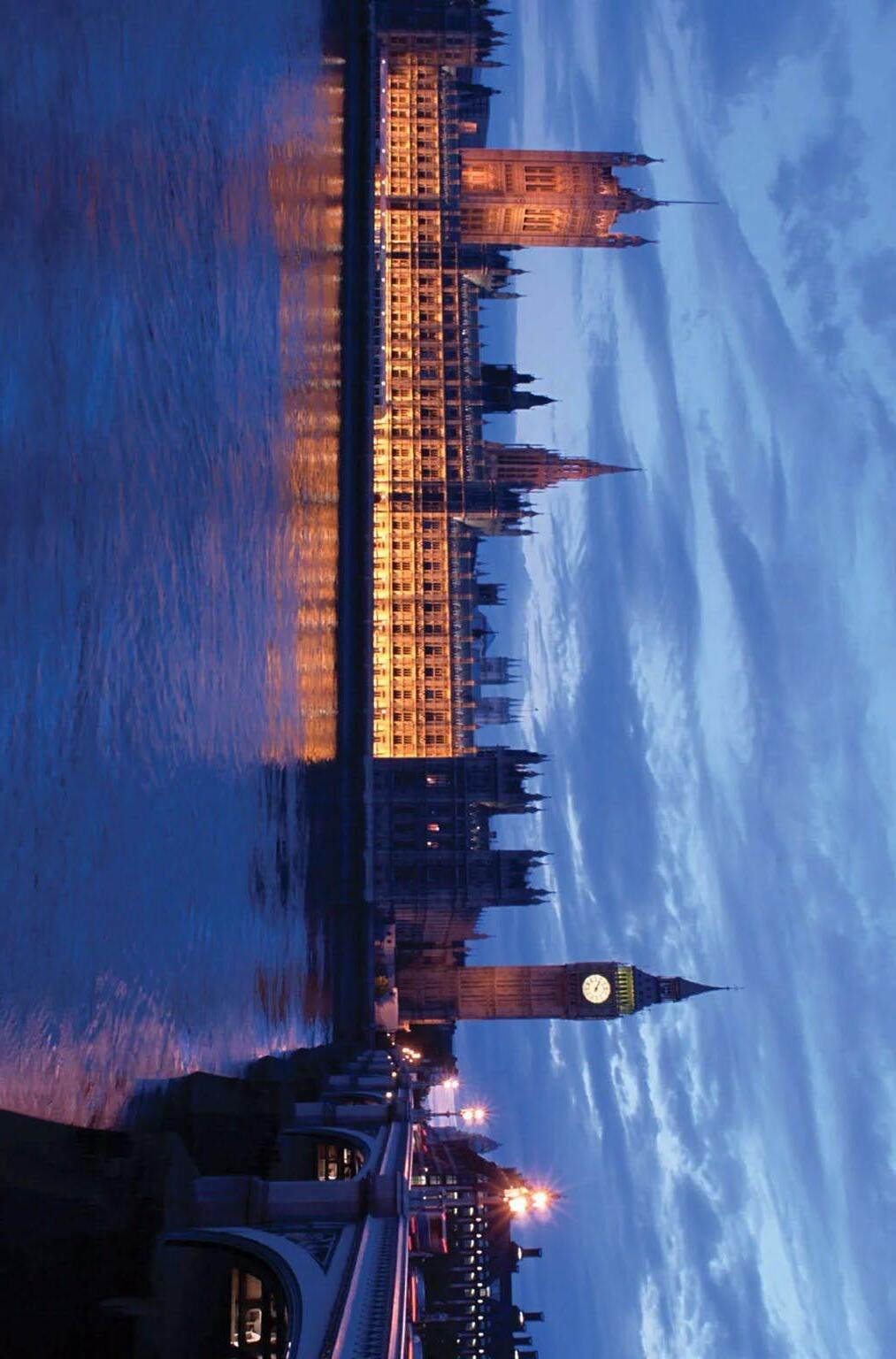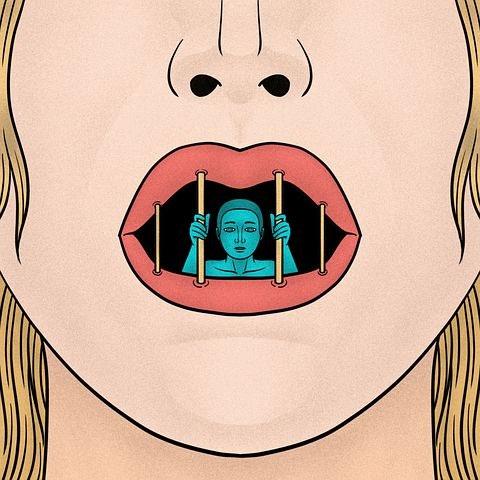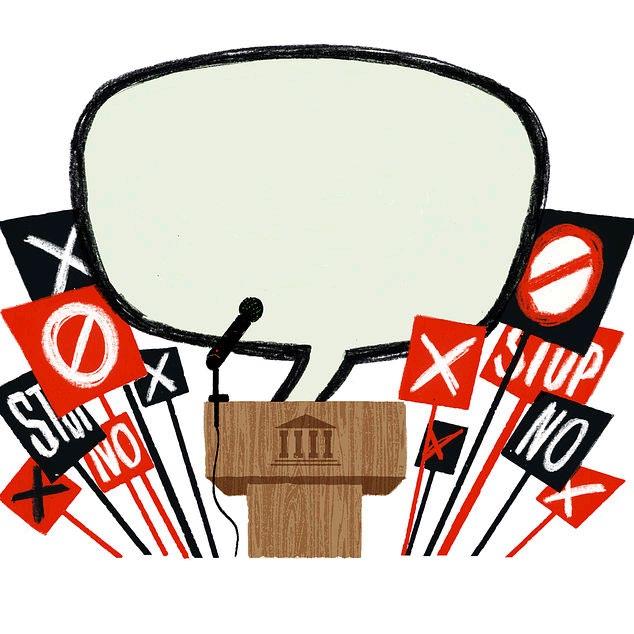6 minute read
limits, if any, should we place on the right to freedom of expression?
Next Article
By Amoré Adams

Article 10 of the Human Rights Act 1998 states that freedom of expression is the “freedom to hold opinions and to receive and impart information and ideas without interference by public authority and regardless of frontiers.” This right is at the heart of democratic society, enabling people to exhibit their identities, values and opinions without being persecuted for doing so. Therefore, this essay proposes that the only limits to this principle should be in cases where it conflicts with other rights enshrined in the Human Rights Act. This approach is explored in relation to current limits to freedom of expression, hateful expression and social media.
"The right to swing my fist ends where the other man's nose begins." This maxim, attributed to Oliver Wendell Holmes, a former Associate Justice of the Supreme Court of the United States, precisely encapsulates where the limits to freedom of expression should be placed. Namely, prohibiting this right should only be limited to contexts where it violates the human rights of another, especially pertaining to the inalienable, absolute rights of the Human Rights Act 1998 - Article 2, 3, 4 and 7 in the UK. Therefore, freedom of expression should take priority over general laws, making these laws void in instances where they violate the fundamental liberties all are entitled to. As freedom of expression is a qualified right, under current UK law there are numerous exceptions to it that result in this freedom being wrongfully diminished. However, many would defend the existence of these conditions, arguing that they often protect other human rights like the restriction on freedom of expression when it is necessary to 'maintain the authority and impartiality of judges' protects the right to a fair trial. Nonetheless, other exceptions to the right such as to 'protect health or morals' does not directly defend any of the human rights, rendering it unjust. Meanwhile, the legitimacy of some of the exceptions to freedom of expression depends on the situation, such as reducing this right to 'protect national security, territorial integrity (the borders of the state) or public safety'. In some cases this clause would uphold the right to life if the risk to national security by expression were to threaten lives, or uphold the right to privacy if the violation of national security were to disclose citizens' personal information. However, if this exception to freedom of expression is not carefully evaluated according to the situation with consideration to which human rights are genuinely threatened, the right to freedom of expression can be unfairly restricted, such as in the case of R v Paul Chambers, notoriously known as the Twitter Joke Trial. After Paul Chambers' flight was cancelled he jokingly tweeted 'C**p! Robin Hood airport is closed. You've got a week and a bit to get your s**t together otherwise I'm blowing the airport sky high!!'
Promptly after this, his house was raided by anti-terror police and he was charged under the Communications Act 2003 after the Magistrate's Court ruled his tweet was of a "menacing nature", despite his adamance that he was joking. Following this he lost two jobs but after appealing the High Court rightfully reversed the original verdict, emphasising that his right to freedom of expression must be upheld. Overall, while some of the current limits to the qualified right to freedom of expression are valid (in cases where they violate other human rights), other limits undermine the supposed supremacy of human rights. Therefore, the only appropriate limit to the right to freedom of expression should be when it violates another human right.
However, many would challenge the proposition to only restrict freedom of expression when it violates another human right on the assumption that it would be impossible to determine whether freedom of expression or the conflicting human right should take priority. This challenge can be overcome by drawing on the case of Campbell v MGN, where it was determined that Naomi Campbell’s right to privacy superseded the Daily Mirror's freedom of expression after they published pictures of her attending a Narcotics Anonymous meeting. For the first time the concept of hierarchically ranking types of speech manifested, introduced by judge Baroness Hale who established that “there are undoubtedly different types of speech, some of which are more deserving of protection in a democratic society than others. 'Political speech is worthy of the strongest protection, while intellectual, educational, and artistic speech are also important.” However, she concluded that this case was solely concerned with "celebrity-exploiting tabloid newspaper” and as it did not come under any of the categories worth legitimately defending, Campbell’s right to privacy trumped freedom of expression. Therefore, for issues where freedom of expression conflicts with other rights enshrined in the Human Rights Act, the order on the hierarchy should first be considered when deciding which right to protect. However, instances where there is a conflict between a form of expression falling under the apex of the hierarchy (political speech) and another right, the matter would be best resolved by a judge of the highest court or when available, judicial precedent.

Another argument that some may raise against protecting freedom of expression above regular laws is that human rights were originally derived from the European Convention of Human Rights and therefore compulsory for all EU member states to adopt. However, as Britain has left the EU some would insist that national legislation such as the Equality and Communication Acts which were passed democratically (even though through indirect democracy) should be favoured over the right to freedom of expression which was imposed on the country by foreign legislation when we were a member state. However, while human rights originated from the European Convention of Human Rights, they are enshrined in UK legislation by the 1998 Human Rights Act, regardless of whether or not the country is in the EU. Furthermore, freedom of expression is a principle under the Universal Declaration of Human Rights (although advisory as opposed to legally binding). Therefore, the right to freedom of expression as a fundamental entitlement of all should not be limited by regular laws.
While many insist that freedom of expression should be curtailed in instances where it enables people to propel offensive or discriminatory ideologies through hate speech or alte rnative mediums, without the freedom to offend freedom of speech becomes meaningless. Few would contest ordinary, benign expression so what is the point of the right if it does not also encompass the most contentious type of expression? However, many would argue that even up against regular laws such as those of the Equality Act 2010 the right should be quashed.
While hate speech and discrimination are undoubtedly immoral, charging people for this form of expression does not resolve the underlying problem. While making it a cause for prosecution may deter people from expressing hateful views aloud, this is actually counterproductive to creating a more progressive society as it is only through social discourse where people can express their views that others are given the opportunity to challenge and potentially reform them. Meanwhile, prosecuting people for hateful expression would do nothing to actually aid them in disregarding such ideologies, but could instead intensify these harmful beliefs due to the resentment felt at being legally reprimanded for them. Furthermore, the fact that the Equality Act only protects individuals from hateful expression in limited places such as the workplace, using public services or when purchasing from businesses means that it is fundamentally flawed. It gives the underlying message that as opposed to hateful expression being intrinsically wrong it is simply unprofessional, as individuals are only prohibited from being discriminatory or hateful when at work, not in the private sphere. Furthermore, the restriction of individuals’ rights when they are working raises an ethical challenge, virtually implying that their entitlements as human beings are only revived upon the termination of their shift. Essentially, freedom of expression should not be limited by hate speech as while morality and law are interlinked, they are ultimately separate entities. Therefore, while hateful expression is immoral and should still be subject to social repercussions, it is not the law's duty to regulate morality. In the digital age the barriers of communication present in the physical world are eradicated through social media, increasing the opportunities for harmful expression. Thus, many are in support of the recent Online Safety Bill proposed by Parliament. However, while some of the offences under this bill help to uphold other human rights such as banning media displaying self harm (which could ultimately threaten the right to life), other offences are more controversial, such as knowingly distributing seriously harmful misinformation. However, the right to freedom of expression should only be limited when misinforming social media content undermines a human right, like the right to life. For example, the spreading misinformation about COVID-19 in incidents where it could genuinely lead to people putting their lives at risk, such as videos circulating social media platforms at the beginning of the pandemic claiming the disease was a myth. Overall, limits to freedom of expression online should conform to the limits to this right proposed in the physical world: in cases when another human right is violated. Therefore, this should be reflected in the offences under the Online Safety Bill.

In conclusion, limits on freedom of expression should allow individuals as much autonomy as possible, considering that autonomy encapsulates the primary purpose of this freedom. Therefore, the state should only encroach on this right in both the physical and online realms in instances when another human right is violated. While this proposal would not prosecute people for expression that is considered morally wrong, society must rather focus on combatting these ideas at the source through education and challenging it when it does arise. In essence, in the words of Benjamin Franklin 'there is no such thing as public liberty without freedom of speech'.

